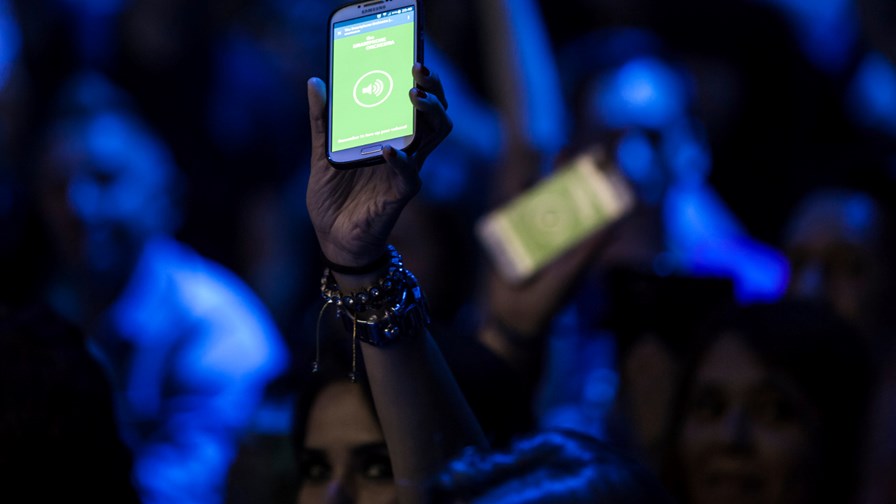The smartphone market is getting a buffeting: not all of it Covid-related

© Joao MB Costa
- Samsung, Apple, Qualcomm, Google and Huawei are all involved in this little series of scuffles
- Covid-19 has been disrupting the market, of course
- But there are also other forces at play including services and who gets to deploy them
Disruption is hitting the smartphone business. Like every other tech sector Covid-19 has struck some hard and others less so. That alone is enough to see rankings and prospects for different vendors change, but there are other disruptive forces out there to exacerbate things. Here’s some detail on the latest buffetings:
Qualcomm v. Huawei
Qualcomm is doing a victory lap having negotiated a back-dated and long-term patent agreement with Huawei which gives the companies access to each other’s IP. The agreement ends a long dispute between the two with Qualcomm benefiting by $1.8 billion in the September quarter alone. That was enough to boost its share price by 13 per cent in the immediate wake of the news.
Although the US government has banned Huawei from buying Qualcomm chips, buying technology licenses is apparently OK.
According to Qualcomm CEO, Steve Mollenkopf: “As 5G continues to roll out, we are realizing the benefits of the investments we have made in building the most extensive licensing program in mobile and are turning the technical challenges of 5G into leadership opportunities and commercial wins.”
Cnet reports that Huawei was the last major company fighting with Qualcomm over its licensing terms. One of the other major Qualcomm antagonists was Apple.
Apple v. Qualcomm
The two companies fought each other to a standstill about a year ago when they eventually agreed a licensing and chip supply agreement. In its wake it was expected that Apple would be using the relevant Qualcomm tech in its forthcoming 5G iPhone. In its Q3 earnings report, however, Qualcomm warned it was expecting a ‘partial impact from the delay of a global 5G flagship phone launch”. That pointed to a delay in Apple getting its 5G iPhone out the door as it was deemed to be the only vendor whose launch delay would make a big enough dent in Qualcomm’s earnings to warrant it making a ‘material disclosure’. Launch delays are always a big deal because of the market share implications
Samsung v. Huawei v. Covid-19
Despite (or perhaps because of) geopolitical headwinds Huawei has tightened its grip on its home market and shipped more phones worldwide than any other smartphone vendor in Q2, trouncing Samsung which was formerly the top dog. Researchers Canalys say this is the first time in nine years (since Nokia was top smartphone dog?) that any vendor not called Apple or Samsung has led the pack.
Huawei has made up for all the headwinds stifling its overseas business by doubling down on the domestic market - boosting it by 8 per cent in Q2. But really, it’s found itself in the top slot because Samsung has been disrupted by Covid in its core markets of Brazil, India, the United States and Europe. Samsung shipments are down by 30 per cent compared to the same quarter last year!
Canalys says its Q2 leadership is very important to Huawei at this stage of the game, but warns that its strong showing in China won’t be enough to sustain it at the top once the global economy recovers.
Samsung v. Google
While we’re with Samsung, reports indicate that Google and Samsung are discussing Google products being granted more search tasks on Samsung products. You thought Google was already plenty represented on Samsung platforms with the Samsung equivalents to Google’s mail, search, storage etc just making up the bloatware numbers on the phone. But according to Reuters, Google wants to ensure that its Playstore and voice assistant products get maximum Android exposure. It’s reportedly offering a revenue sharing deal with Samsung in return for giving Google - at the very least - more exposure on the platform, although ideally it would like to see the back of the Galaxy App store and Samsung’s Bixby virtual assistant. Samsung says it’s committed to its own services and ecosystem (but then, at this stage in the negotiations, it would say that wouldn’t it?)
All the above squabbles are set against a background of tightening hardware margins and greater reliance on services in the future. Which is one good reason why sales volumes are so important to all the vendors. If anything,the global lockdowns and the increased reliance on digital platforms for entertainment and remote work has intensified the market share struggle.
Email Newsletters
Sign up to receive TelecomTV's top news and videos, plus exclusive subscriber-only content direct to your inbox.




